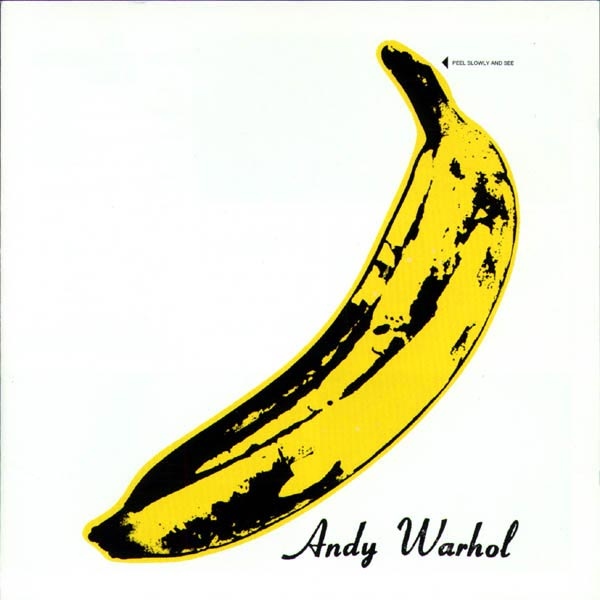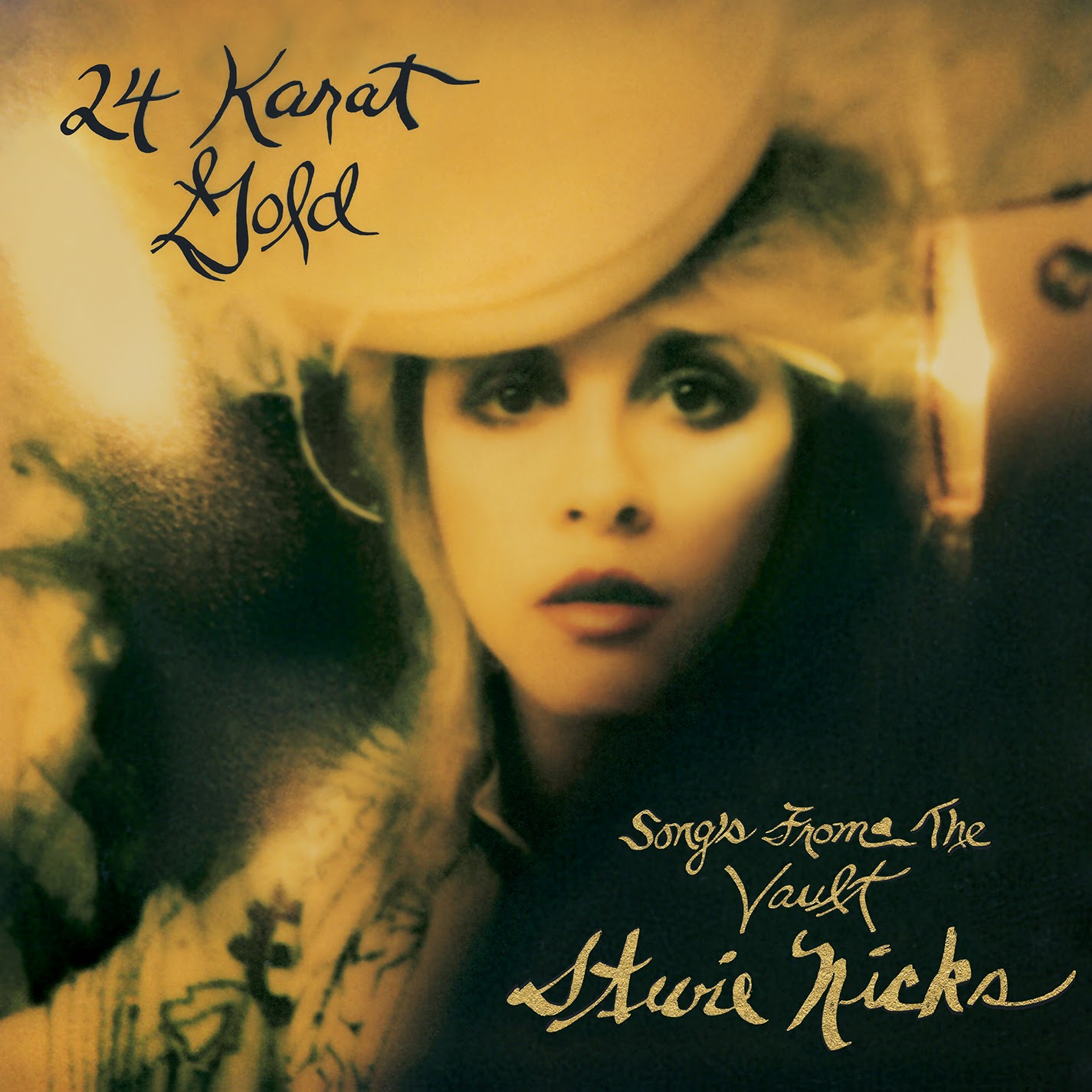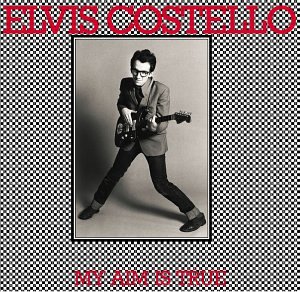This year’s music mix has a new factor thrown in. Normally these collections are culled from the music I’ve been listening to over the previous year (with “year” being defined as November – October, so I can get the CD mailed to Wales in time for Christmas). That part hasn’t changed, but the new factor is the album assignments game I’ve been playing with Robby over the fall. That’s changed my listening habits, so that a couple of days out of each week are now devoted to a particular album, with the aim of writing about it later. That’s brought in some things that wouldn’t have been in my regular rotation — Elvis Costello and The Clash among them. It also means that some of this stuff I’ve already written about, so I’ll try not to repeat myself. Of course, that means I may be a bit briefer than usual on some tunes.
1. The Airborne Toxic Event – No More Lonely Nights
Case in point. TATE is now on my “to-do” list after this track, which performs the minor miracle of resurrecting this Give My Regards To Broad Street tune into something subtle and moving.
2. Stevie Nicks – Belle Fleur
Okay, I just wrote four paragraphs of background about Stevie’s 24 Karat Gold album, then realized that they’re supposed to go in my article about the album itself. Robby doesn’t know it yet (as I write this), but I’m assigning that album to him next.
Meanwhile, a few words about this song. It’s an example of a song that I’ve had in demo form for decades, but never really connected with that much. This re-recording, on the other hand, moves me a lot. To me, it’s a story of love and magic, but not magic love — it’s no ticket to dreamland. What it is, though, is an exchange of stories, and a sharing of lives — you sing to me, and I’ll sing to you.
3. Joe Jackson – Ode To Joy
Speaking of new albums from old friends, I just saw Joe Jackson in concert in October, touring to support his new record Fast Forward. This was my favorite song he played that night, and my favorite from the new CD. I love its wholehearted embrace of joy, joy as a pure experience unfettered by the material and phenomenological planes. The New Yorker did a wonderful profile of Joe, and one of my favorite parts of that is this quote:
Some of my early stuff was infected by the deadly disease of cynicism, which is a disease of the young, I think. When you’re young, it seems very clever to be cynical. But as you get older, hopefully, if you’re not completely stupid, you realize that you have to be a bit more positive, as a simple matter of survival.
I happened to listen to this album right before reviewing Don Henley’s Cass County, and Joe’s optimism is a lovely contrast to some the harshness on display there. And being Joe, he cleverly quotes Beethoven in the bargain.
4. Elvis Costello – Mystery Dance
I wonder if the kind of world that could produce this song is gone forever. Can sex still be mysterious when so much information about it is so easily retrieved? Sure, there’s a world of difference between reading about something and doing it, and lots of what’s out there could warp a kid’s perceptions and blur the difference between fantasy and reality, but there was a time in living memory when you could try and try and still be mystified. Does that happen anymore?
5. The Clash – Death Or Glory
I can hardly say more about this than I did in my London Calling post. Suffice it to say that I put it on repeat in my car for a day, and never got sick of it. And I drive a lot! It’s as energizing the 20th time as it was the first.
6. Fleetwood Mac – Songbird (live)
This last year was a special one for Fleetwood Mac fans, because we saw something we never thought we’d see again: Chrstine McVie touring with the band. I actually saw them in December 2014 and April 2015, which is why there are two songs from the set list on this CD. In April, she didn’t play “Songbird” — apparently she was dealing with some kind of injury, because it came back to the set later. She played it in December though, and it’s just the most perfect set closer. I never got the chance to see Fleetwood Mac in its prime — my first FM show was the 1987 tour where they replaced Lindsey with two other guitarists, and my first time seeing the classic lineup was in 1997. That was also my last time until now. It was such a joy to hear this song at the end of the show. This recording is from 1977, and was included in the Rumours expanded edition that they released a couple of years ago. [The YouTube clip I linked to above is from a different 1977 show — I couldn’t find the expanded edition one online.]
7. Tori Amos – Promise
I’ve been a Tori Amos fan for a long time now, so I was aware that she had a daughter named Tash. But that wasn’t uppermost in my mind while I was listening to her new album Unrepentant Geraldines this year. So when I heard this song, I could tell it was a duet, but I didn’t recognize the other voice — all I could hear was that it was somebody who had a lot on common with Tori vocally. As I listened to the lyrics, discerning that this was a conversation between mother and daughter, I started to wonder, “Could this be Tash?” And sure enough, it is. That realization sent chills through me. Tash was born on 2000, so she was probably 13 when this song was recorded. Given that, it’s a remarkable performance, and as a parent I find the lyrics very moving.
8. Roger McGuinn – If We Never Meet Again
I revisited McGuinn’s album Back From Rio this year — I’ve always liked his twelve-string guitar sound, and this is my favorite of his non-Byrds releases. This time around, “If We Never Meet Again” latched onto me. The tone is just golden, and the message of acceptance for whatever may come sits well with me.
9. Best Coast – Each And Everyday
I came across this band on a Fleetwood Mac tribute album done by a bunch of indie groups, called Just Tell Me That You Want Me. There were lots of great covers on that album, but Best Coast’s version of “Rhiannon” really grabbed me, mainly I think because of singer Bethany Cosentino’s voice. So I sought to know more about them and ended up quite enjoying both of their first two albums. (I haven’t got their third yet, but it’s on my wish list.) This is a track from their debut.
10. The Clash – The Card Cheat
There are so many great things about this song, but it has to start with the production. Contrary to what you might expect from a punk band, this song is as well-produced as any pop gem. The ringing piano, valedictory horns, majestic rhythm section — it’s like a classic Phil Spector “Wall Of Sound” record, infused with a cathedral grandeur. Wedding this incredible sound to the tale of a lowlife gambler is like the aural version of a Scorsese film, elevating the dismal criminal world to an operatic level.
11. Paul F. Tompkins – King Hat
My friend Tashi put me onto this comedian, whose records I just adore. Many of his bits have now become part of the conceptual vocabulary in my mind, especially the ones from his most recent album Laboring Under Delusions, which is a concept piece about all the various jobs he’s done in his life. I listened to that album a bunch over this last year, and knew I wanted to include something from it. I had a hard time picking. I went with this one because a) it’s a great showcase for his style, b) it’s a linguistic rant, which I find endearing, and c) it reminds me so much of the stories Laura tells me about her retail-esque experiences at the library. Oh, and because it’s so freakin’ funny, of course.
12. Macklemore & Ryan Lewis feat. Mary Lambert – Same Love
Here’s another album I spent an awful lot of time with over the last year. I was a bit late to the Macklemore party, but boy The Heist is great. A number of songs from it got thrown into the hopper for this mix, but if I had to pick just one (and, it turned out, I did), it’d be “Same Love.” I so appreciate the personal story flowing into the cultural analysis, and the strong, clear call for hip-hop to stand behind marriage equality. Damn right I support it.
13. Dan Wilson – Free Life
Dan Wilson was the lead singer and writer of the 90’s band Semisonic, who were a one-hit wonder with the song “Closing Time.” It’s a shame that they never found greater success, because Wilson is an absolutely brilliant songwriter, who did amazing work with Semisonic and then went on to co-write such killer songs as Adele’s “Someone Like You” and the Dixie Chicks’ “Not Ready To Make Nice.” This song is from his 2007 solo debut, and it stands out for me this year because my iPod dialed it up as I was driving back from New Mexico, having just participated in the 2015 Geek Bowl in Albuquerque. It felt so perfect for that specific moment in my life that I put it on repeat a few times, just listening to the music and feeling free.
14. Elton John – Rocket Man (I Think It’s Going To Be A Long Long Time)
Sometimes a classic just jumps out and reminds you why it’s a classic. I was listening to Honky Château in the car, and when this song came on I marveled at how intensely gorgeous it is. Plus, it’s a fantastic song to sing along to, which is probably why I sang it over and over on that 45-minute commute.
15. Elliott Smith – Junk Bond Trader
I’ve had XO in my collection for a while, and while I enjoy it, I never really imprinted on it. Figure 8, on the other hand, knocked me out. So many great songs on that album — as with Macklemore, there were a bunch in the running and it came down to this one. The lyrics to this are so fantastic — elliptical and evocative, with the occasional razor-sharp one liner, like “Checking into a small reality / Boring as a drug you take too regularly.” What’s it about? I really don’t know. But I sure do dig how it’s about it.
16. Fleetwood Mac – Sisters Of The Moon
This was the highlight of the April 2015 Fleetwood Mac show. It’s always been one of my favorite Stevie songs — I love the power chord progression and the mystical vibe. She can’t hit those high notes any more (the backup singers do it for her), and the cocaine-fueled frenzy that used to characterize live performances of this song is long behind her, but still, it is a powerful, spellbinding incantation, and it lifts me up every time I see it.
17. Florence + The Machine – Dog Days Are Over
Speaking of powerful. Ceremonials was a big record for me in 2014, so I decided to check out Florence’s debut as well, and I’m glad I did. There’s a reason this song got so famous. I love rock songs with big drums and a big voice like this — they make me feel like I’m flying.
18. Best Coast – The Only Place
Here’s a song from Best Coast’s second album. True to their name, it’s a paean to California, and I have to say they make a pretty good case. Especially for somebody like me who could be perfectly happy never seeing snow again, Southern California seems like a pretty amazing place to live. Oh, except for the earthquakes. And, I guess the mudslides. And the forest fires. And how expensive everything is. But other than that, aces!
19. Fountains Of Wayne – Bright Future In Sales
One final showcase from another album I really got into in 2014. My friend Trish has been a huge FoW fan for ages, and always told me I should check them out. You know how it is with that kind of thing, though — I’d always think, “Yeah, I should,” and then go listen to something I already know. That’s the beauty of the wishlist, though. I can just tag something based on a passing thought, and then some angel will bring it into my life, where I can give it the attention it deserves. This album, Welcome Interstate Managers, dominated my car for about 3 weeks, and I got to love each and every song on it. There were a bunch to choose from, but this one does a great job of encapsulating the humor, the characterization, the storytelling, and the awesome power pop slam that Fountains Of Wayne brings to its music.









